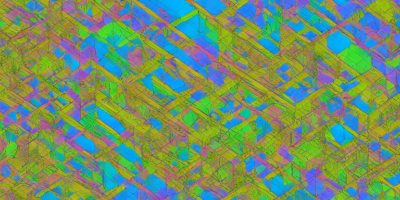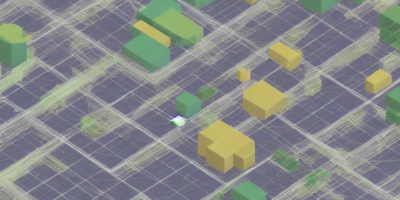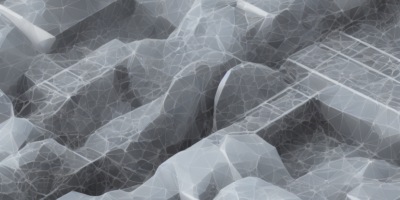In this paper, we delve into the realm of nonlinear dimensionality reduction, specifically focusing on the graph Laplacian in a possibly high-dimensional space. The authors aim to provide a detailed analysis of the convergence rates for eigenvalues and eigenvectors of the graph Laplacian when the graph is sparse. This work contributes to the existing literature on the subject, particularly in the context of machine learning and data science, where the so-called manifold hypothesis plays a crucial role in various statistical inference algorithms.
To better understand the concept of nonlinear dimensionality reduction, imagine a vast ocean filled with countless islands, each representing a point in a high-dimensional space. The problem at hand is to find a way to accurately represent these islands using a much smaller number of points, without losing any essential information. This is where the graph Laplacian comes into play, serving as a kind of underwater map that helps identify the most important connections between the islands.
The authors demonstrate that by using homogenization instead of averaging, they can strengthen existing results and obtain optimal convergence rates for the spectrum of the graph Laplacian. This is particularly significant in applications inspired from machine learning, where data-driven methods are often used for statistical inference problems such as classification. The paper’s findings provide valuable insights into the so-called manifold hypothesis, which posits that real-world data is scattered around a low-dimensional unknown structure embedded in a possibly high-dimensional space.
In summary, this article delves into the complex world of nonlinear dimensionality reduction, shedding light on the graph Laplacian’s role in representing high-dimensional spaces and achieving accurate representations using fewer points. By leveraging homogenization techniques, the authors provide optimal convergence rates for the spectrum of the graph Laplacian, contributing to the growing body of research focused on demystifying complex concepts in data science and machine learning.
Numerical Analysis of Sparse Graphs: Sharp Error Estimates and Homogenization



